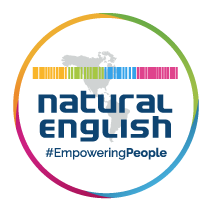
9.1 What Is a Modal Auxiliary Verb?
Modal Auxiliaries generally express a speaker's attitude or mood. For example, modals can express that a speaker feels
something is necessary, advisable, possible or probable.
The Modal Auxiliaries in English are: can, could, may, might, ought to, shall, should, must, will and would. Modals
do not take a final -s, even when the subject is he, she or it.
Examples:
Modals are followed immediately by the Simple Form of the Verb and never followed by the preposition to.
Examples:
The only exceptions are ought and have, which are followed by an infinitive (to + the simple form of a verb); ought to, have to.
Examples:
There are some similar expressions to these Modal Auxiliaries, and must be preceded by an infinitive (to + the simple form of a verb) that is used in these similar expression.
Examples:
Other expressions:
9.1.1 May – Might
You can use this modal to express:
He may be at the library
9.1.2 Shall
You can use this modal to express:
(Will is more commonly used).
9.1.3 Should
You can use this modal to express:
9.1.4 Must
You can use this modal to express:
9.1.5 Can
You can use this modal to express:
He could be at home.
9.1.5 Will
You can use this modal to express:
9.1.5 would
Would you mind if I leave early?
9.1.8 Ought To
You can use this modal to express:
9.1.9 Have to
You can use this modal to express:
9.1.10 Going to
You can use this modal to express:
9.1.11 Used to
Repeated action in the past:
Excercise 1
Use either should or could to complete the sentences.
- 1. children not play with matches.
- 2. Matches cause a fire.
- 3. I ask a question?
- 4. Where is Frank? He be at home or at the library.
- 5. Where is Frank? He be at the library told him to go there.
- 6. I leave now. I have to be home at 8:00 o'clock and it is already 7:30.
- 7. You call home; your parents are worried.
- 8. I think she do well on the test. She studied all night last night.
- 9. I am sorry, but I not go to the party last Saturday; I was sick.
- 10. Mary stay home. She has a headache.
- 11. I not drive a car when I was 5 years old.
Excercise 2
Use either would or may to complete the sentences.
- 1. you mind if I opened the door?
- 2. Children, you go out until 5:00.
- 3. I ask a question?
- 4. It rain tonight. It looks cloudy.
- 5. you rather go to the park or to the soccer match?
- 6. we go home please?
- 7. you like to go out with me?
- 8. Mary like to go to the park.
- 9. I buy a new house next year.
- 10. I buy a new car, but I can't because I don't have money!
Excercise 3
Use can, can't, could or couldn't to complete the sentences.
- 1. I never learned how to skate, so I skate.
- 2. I speak Chinese, but maybe I will learn someday.
- 3. A cat climb trees.
- 4. Pigs climb trees.
- 5. When I was a child I not go not until late.
- 6. When I was a baby I sleep all day if I wanted.
- 7. She buy that diamond ring and necklace because she just won the lottery.
- 8. They could_go in my car if they want.
Excercise 4
Use either may be or maybe to complete the sentences.
- 1. the game I ordered arrived here already. Let's go see!
- 2. Jack a fireman but I am not sure.
- 3. Wait, Pablo is a fireman.
- 4. The TV said that it will snow.
- 5. Mary at the store right now.
- 6. I at school tomorrow.
- 7. they have seen that movie.
- 8. Tomorrow I late.
- 9. my boss will get angry.
